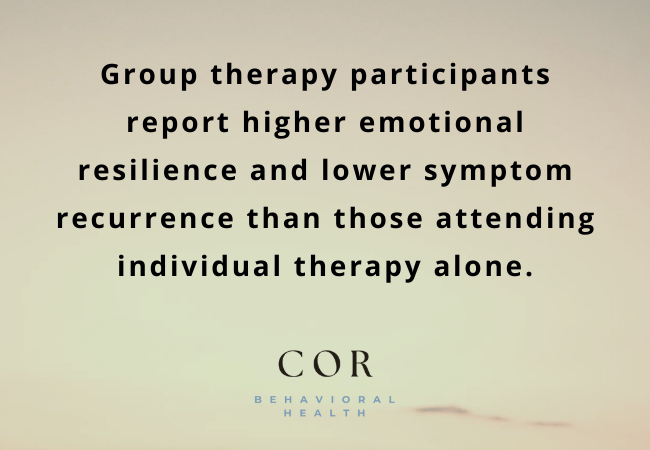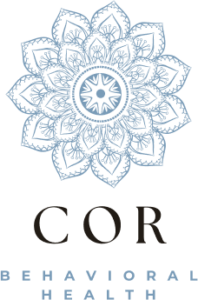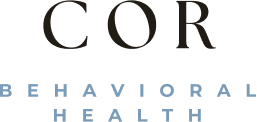
When you’re navigating mental health challenges, finding the right kind of support can make all the difference between feeling overwhelmed—and feeling hopeful.
At COR Behavioral Health, we recognize that every healing journey is unique.
That’s why we offer a diverse range of mental health treatments in Martin County, Florida, carefully designed to meet individuals wherever they are in their process.
Whether you need weekly support, intensive daily treatment, or help transitioning back to everyday life, we provide compassionate, clinically effective programs that empower you to heal—and thrive.
In this detailed guide, we’ll explore each type of treatment we offer, how it works, who it’s best for, and how it fits into a full continuum of care.
Treatment Options at COR Behavioral Health
| Treatment Option | Focus | Intensity | Best For |
|---|---|---|---|
| Individual Therapy | One-on-one emotional exploration and coping skill development | Weekly/Biweekly | Clients managing anxiety, depression, trauma, or life transitions |
| Group Therapy | Peer support, skill-building, and shared healing | Multiple times/week | Clients benefiting from community and interpersonal work |
| PHP (Partial Hospitalization Program) | Full-day stabilization and skill development | 5–6 hours/day, 5 days/week | Clients needing daily clinical support but no overnight care |
| IOP (Intensive Outpatient Program) | Structured part-day therapy while living independently | 3–5 days/week, 3–4 hours/day | Clients needing more than outpatient therapy, but more flexibility than PHP |
| Outpatient Therapy | Ongoing emotional support and maintenance | Weekly or biweekly | Clients ready for long-term wellness maintenance |
1. Individual Therapy in Martin County, Florida
What Is Individual Therapy?
Individual therapy is one-on-one counseling where a client works closely with a licensed therapist to:
- Explore emotional challenges
- Build coping strategies
- Process past trauma
- Strengthen personal resilience
Sessions focus entirely on your personal history, strengths, and goals.
Who Benefits Most from Individual Therapy?
- People dealing with anxiety, depression, or PTSD
- Individuals navigating major life transitions (divorce, loss, career change)
- Clients who prefer private, one-on-one emotional processing
- Anyone needing customized strategies for healing
2. Group Therapy in Martin County, Florida
What Is Group Therapy?
Group therapy involves therapist-led sessions with peers navigating similar challenges.
It offers a powerful combination of skill-building, emotional support, and community.
At COR Behavioral Health, we offer specialized group sessions focused on:
- Anxiety and emotional regulation
- Trauma recovery
- Relationship skill-building
- Coping strategies for depression, stress, and grief
Who Benefits Most from Group Therapy?
- Individuals feeling isolated in their struggles
- Clients seeking peer support and accountability
- Those working on social skills, boundaries, or vulnerability
- Anyone benefiting from hearing different perspectives
3. Partial Hospitalization Program in Martin County, Florida
What Is a Partial Hospitalization Program?
PHP is our most intensive outpatient offering, providing full-day support for individuals who:
- Are at risk of hospitalization
- Have recently been discharged from inpatient care
- Need daily structure to stabilize symptoms
Clients attend 5–6 hours of therapy each day, receiving:
- Individual therapy
- Group therapy
- Psychiatric care and medication management
- Skill-building workshops focused on real-world functioning
PHP allows individuals to sleep at home at night, balancing high-intensity treatment with home life.
Who Benefits Most from PHP?
- Clients needing urgent stabilization without 24/7 hospitalization
- Individuals recently discharged from a psychiatric hospital
- People experiencing intense depression, anxiety, trauma, or emotional dysregulation
4. Intensive Outpatient Program in Martin County, Florida
What Is an Intensive Outpatient Program?
IOP is a structured step-down from PHP, offering intensive therapy without the need for full-day attendance.
At COR Behavioral Health, IOP typically involves:
- 3–5 days per week of therapy
- 3–4 hours per day
- Continued access to individual therapy, group therapy, and psychiatric care
- Skills development focused on applying tools to daily life (CBT, DBT, mindfulness)
Who Benefits Most from IOP?
- Clients transitioning from PHP toward more independent living
- Individuals who need more than weekly therapy, but can manage home life safely
- People rebuilding work, school, or family roles while continuing intensive emotional work
5. Outpatient Mental Health Treatments in Martin County, Florida
What Is Outpatient Care?
Outpatient therapy is the lowest-intensity level in the care continuum.
It supports:
- Long-term emotional health maintenance
- Continued trauma recovery
- Personal development and life transitions
Outpatient services at COR Behavioral Health include:
- Weekly or biweekly individual therapy
- Psychiatric medication management
- Specialized therapy for trauma, grief, stress, or mood disorders
Who Benefits Most from Outpatient Care?
- Clients who have completed PHP or IOP and are in stable recovery
- Individuals managing mental health conditions with established coping skills
- People seeking ongoing personal growth and emotional resilience

How These Programs Fit Together: A Continuum of Care
At COR Behavioral Health, treatment isn’t a one-size-fits-all process—it’s a fluid, evolving journey:
| Phase | Treatment |
|---|---|
| Acute Crisis or Hospital Discharge | Partial Hospitalization Program (PHP) |
| Symptom Stabilization | Intensive Outpatient Program (IOP) |
| Independent Living with Support | Outpatient Individual or Group Therapy |
Clients can move up or down levels of care based on progress, ensuring no one feels abandoned or stuck.
How Personalized Treatment Planning at COR Behavioral Health Makes a Difference
No two individuals experience mental health challenges in the same way.
That’s why COR Behavioral Health believes in offering more than just programs—we offer personalized pathways to healing.
How Personalized Planning Works:
When a client first reaches out to COR Behavioral Health, they undergo a comprehensive clinical assessment.
Our skilled team evaluates:
-
Mental health history and current symptoms
-
Past treatment experiences and outcomes
-
Substance use history (if applicable)
-
Life stressors, support systems, and personal goals
Based on this assessment, we create a customized treatment plan that matches the client to the most appropriate level of care—whether that’s Individual Therapy, Group Therapy, Partial Hospitalization Program (PHP), or Intensive Outpatient Program (IOP).
As the client progresses, treatment plans are flexible and evolve.
If someone stabilizes quickly, they may transition from PHP to IOP sooner.
If new challenges arise, their plan adjusts to provide additional support.
Why Personalized Planning Matters:
-
Better engagement: Clients are more motivated when care fits their specific needs.
-
Faster stabilization: Tailored strategies help address root issues efficiently.
-
Stronger outcomes: Personalized goals create realistic, achievable progress markers.
-
Empowerment: Clients feel seen, heard, and respected—essential ingredients for real healing.
At COR Behavioral Health, you’re never just a diagnosis—you’re a whole person with a unique story. And we’re committed to helping you write the next, stronger chapter.
Transitioning Between Levels of Care: What to Expect at COR Behavioral Health
Mental health recovery is not a straight line—it’s a journey that often requires different types of support at different times.
At COR Behavioral Health, we offer a continuum of care that adapts to your needs at every stage.
How Transitions Work:
1. Starting with Stabilization (PHP)
If a client requires intensive daily care, they may begin with our Partial Hospitalization Program in Martin County, Florida.
Here, they receive 5–6 hours of structured therapy per day, focusing on symptom management, crisis stabilization, and skill-building.
2. Stepping Down to Structured Support (IOP)
Once symptoms are more manageable, clients may transition into our Intensive Outpatient Program.
In IOP, they continue therapeutic work while having greater flexibility to reengage with work, school, or home life.
3. Moving Into Long-Term Growth (Outpatient Therapy)
As clients grow more independent, they step down to outpatient individual therapy or group therapy for continued emotional support and relapse prevention.
Why Structured Transitions Are Critical:
-
Reduces the risk of relapse: Clients maintain momentum rather than feeling abandoned.
-
Builds confidence: Each transition reinforces the client’s ability to manage emotions and stress in real life.
-
Strengthens independence: Clients gradually take on more responsibility with ongoing support.
-
Encourages personal empowerment: Healing becomes a process of growth, not survival.
At COR Behavioral Health, transitions aren’t rushed or forced—they’re carefully planned, collaborative, and compassionate.
We’re not just focused on where you are—we’re focused on where you’re going.
Emotional Benefits of Choosing the Right Treatment at COR
When individuals find the right fit for their needs, they often experience:
- Faster emotional stabilization
- Stronger self-esteem and confidence
- Better real-world coping skills
- Stronger support systems (peer and clinical)
- Hope for long-term personal growth and success
Why Choose COR Behavioral Health for Mental Health Treatment?
At COR Behavioral Health, we are more than a treatment center—we are a healing community.
We offer:
-
Trauma-informed, evidence-based care at every level
-
Customized treatment plans tailored to each individual’s history, goals, and needs
-
A full continuum of care from PHP to IOP to outpatient therapy
-
Experienced, compassionate clinicians who meet clients where they are
-
A warm, inclusive environment built on respect, hope, and empowerment
Our mission is to help you not just get better—but stay better—through every step of your journey.
Conclusion
Recovery is possible—and it begins with finding the right level of care for you. At COR Behavioral Health, our range of mental health treatments in Martin County, Florida allows you to receive the support you need without losing sight of your goals, your values, and your future.
Whether you need the daily structure of PHP, the flexibility of IOP, the personalized care of individual therapy, or the community of group sessions, you’ll find a program designed to help you build resilience, confidence, and hope. Call COR Behavioral Health today at 888.231.7973 to schedule a confidential assessment and take your first step toward lasting emotional stability and growth. Your future is waiting—and healing is closer than you think.
FAQs About Mental Health Treatments at COR Behavioral Health
How do I know which program is the right starting point?
You’ll undergo a thorough clinical assessment at COR Behavioral Health to determine whether PHP, IOP, individual therapy, or a combination will serve your needs best.
Can I participate in multiple types of treatment at once?
Yes! Many clients receive both individual and group therapy while attending PHP or IOP programs.
What if I need to adjust my level of care during treatment?
That’s normal. Our team regularly reviews client progress and can adjust treatment plans if you need more or less structure.
Are family members involved in treatment planning?
Whenever appropriate and helpful, family therapy sessions or family psychoeducation workshops are offered—especially for clients in PHP and IOP.
How soon can I start treatment after reaching out?
COR Behavioral Health works hard to provide fast admissions—often within 24–72 hours depending on your insurance and scheduling needs.



